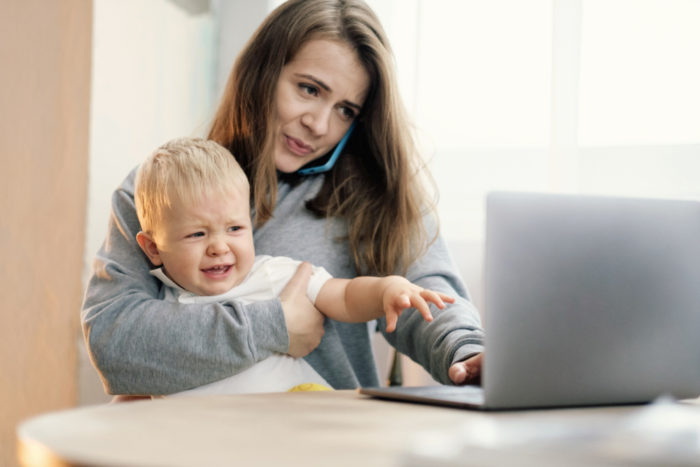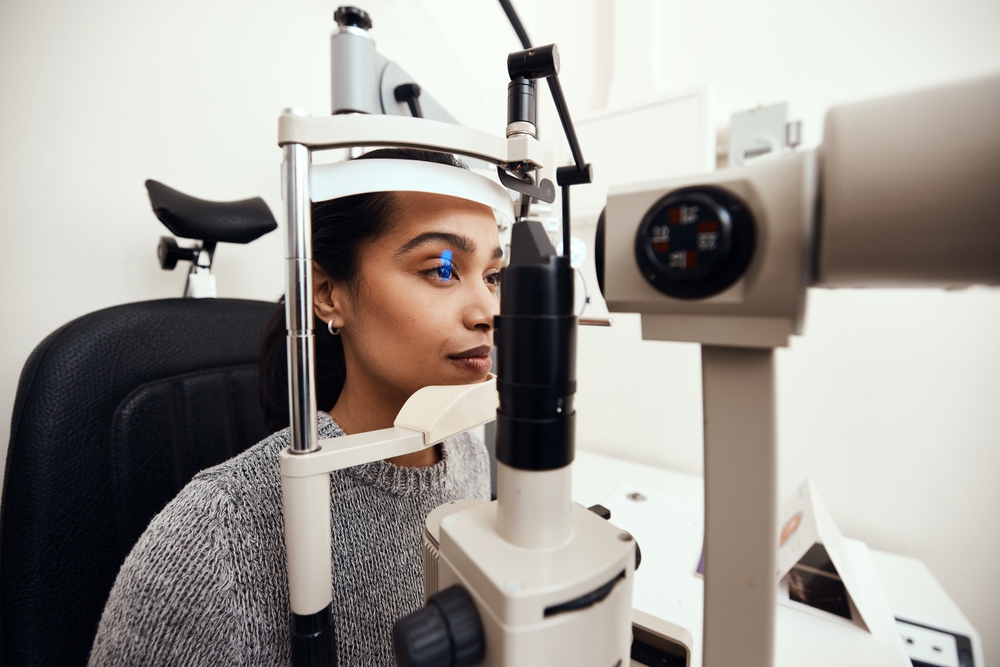
Working from home – what started as a bit of fun became a serious mental challenge
January 21st, 2022Did you underestimate the impact that working from home would have on you during this unprecedented time?
Remote working was on the increase before the Coronavirus pandemic and people faced challenges such as feelings of isolation but in March 2020 when a lot of employees were forced by law to work from home, what started as a bit of fun soon became a real mental challenge for many. We underestimated timescales and nearly two years on, a lot of employees who were alien to remote working have now had to learn a new way of living their working day. It has resulted in some personality changes and a different career path.
The negatives of working from home are obvious but the pandemic amplified those issues and affected brain health. A study revealed that the most common complaints from people working at home are:
- The feeling of isolation – we need human interaction
- Loneliness – we need people around us
- Anxiety or depression – change can sometimes have a negative effect
- Agitation – frustration from the mentioned challenges
- Developing unhealthy habits – grazing on food all day long
- Musculoskeletal disorders from inappropriate seating positions
- Taking less exercise – finding the motivation to go out can be hard
- Weight gain – without structure it’s easy to live an unhealthier life
- Feeling less connected to work colleagues
- Experiencing a lack of support – there’s no one on hand to quickly turn to, a human presence that is sometimes comforting
- Disturbed sleep from an inability to differentiate between work life and home life
- Inability to switch off because your home is your work environment
- Fear of retaliation from employers if an employee reported mental health issues
When we were told to ‘stay home’ back in March 2020 by the Prime Minister, some people were excited at the prospect of not going into their office job for a while but the excitement turned to boredom. Extra pennies in the bank and precious time with the family wasn’t enough to prevent the deterioration of mental health for some employees. Saving money by no commute and being able to spend more time with the family proved, in some cases to be detrimental. By June 2020 a study revealed that almost 80% of brits found working from home harmed their state of mind.
Many employees began to suffer from depression and were signed off from work by their doctor. Even though the pandemic restrictions were lifted for a while, some employers have decided to get their employees to remain working remotely for many reasons including saving money on renting office space. Whilst the most recent instruction to ‘work from home if possible’ is to be lifted soon there will be many employees that still have to, not want to, work remotely. Recent research has confirmed our thoughts about how working from home can harm mental health and this is what the experts had to say.
There is a difference in how people have been affected by working from home.
Christina Marriott, Chief Executive of the RSPH (Royal Society For Public Health) recently discussed the outcome of their study on the topic of working from home and its effects on mental health.
She explained, “Our findings reveal that although working from home can be beneficial for people’s health and wellbeing, there are stark differences in how different groups have been affected. For people who have multiple housemates or are working from their bedroom or a sofa, the impact on their mental and physical health is extremely concerning and something we believe that employers need to address.”
She continued to say, “The changes in the way that millions of people are working has the potential for employers to rethink how they are supporting their employee’s mental and physical health. Some form of home working is likely to continue for millions of people and we urge employers to take the necessary steps to ensure their staff can work from home as safely and healthily as possible.”
Employers should encourage positive and healthy remote working routines.
Simon Blake, CEO of the MHFA(Mental Health First Aid) shared his thoughts on the RSPH findings.
Simon explained, “Flexible and home-working practices can have huge benefits for employee wellbeing when managed effectively, but they should not remain a privilege for those whose homes are already conducive to work. With most of us wanting to continue to work from home in some capacity, it’s the responsibility of employers to ensure any potential disparities are acknowledged and accounted for.
He went on to say, “We join RSPH in calling on employers to commit to protecting their people by encouraging positive and healthy remote working routines, and providing clear remote access to appropriate mental health support services and resources. Everyone should have the right to good mental health and wellbeing, and the best employers will set up their workforces not only to cope, but to thrive as we move out of the pandemic.” He continued to say, “This starts with finding a balance between keeping their staff connected to their organisation, while empowering them to establish and maintain boundaries to help prevent burnout or harmful working practices. At MHFA England we created free mental health resources for remote working as part of our My Whole Self campaign, with advice on creating routines, building movement and exercise into your day, and connecting authentically with colleagues.”
Working from home can affect your sleep pattern.
Lisa Artis, Deputy CEO of The Sleep Charity said: “It comes as no surprise to hear that home working has affected some people’s sleep. It can often be a struggle to keep boundaries in place and stick to a regular routine which has a knock-on effect on sleep.”
She continues to explain, “It’s important that when people are working from home that, where possible, they do try to avoid working from the sofa or bedroom. This is because these two areas are often used for relaxing and it’s being mindful that you don’t associate these areas with a feeling of being stressed. Plus, while they may seem appealing, they are usually not good for your posture or productivity.“Ideally, workplaces need to make provisions for people to work from home and encourage employees to not work out of hours so that they have the opportunity to wind down before bedtime. We have a host of resources on our website for workplaces to access but also if anyone is struggling with their sleep.”
If you have been struggling with your mental health whilst working from home, use our 5 simple steps to help you care for your state of mind.
- Create a structured day.
Creating a structure to your daily working from home routine will help you to separate work and personal life. Try to stay consistent with your sleeping patterns – get up the same time that you did when you were in an office job and at the end of a working day, shut down your computer and stop checking emails.
- Create a work area.
Find a working area away from distractions such as any other people on the property, the TV or the kitchen. Have everything that you need to be able to do your job in one place and if possible close the door to your working area. Make yourself comfortable and sit at a desk rather than sit on the sofa.
- Give yourself a break.
Make scheduled times in your routine to take a break, especially from your computer screen, 5-10 minutes every hour. Try to spend time outdoors when you can and standing up at a desk is a great way to shake off any tired spells. Set a time for a walk, run bike ride or fresh air. Find ways to help you relax.
- Stay connected
Working from home has benefits but it can make you feel more isolated. There are a lot of ways to stay in touch with those that matter. Human interaction is really important and can be done via video or conference calls. Talk to others about how they are coping working from home and if you need support talk to your employer.
- Set boundaries from other members in the household.
You should try to reduce exposure to family members such as kids who may think that you are on holiday and want to spend time with you.
How else can we help?
- Are you finding it hard to focus and concentrate whilst working from home? Why not try- Deprenyl (DepPro™ Tabs). Deprenyl is a smart drug, it enhances and protects dopamine in the brain to facilitate faster cognitive actions and improve concentration.
https://www.antiaging-systems.com/products/deprenyl-dep-tabs/
- Do you need a boost? Try Boost™ Pro – High strength Vitamin C- immune system enhancer. Give your body the extra energy it needs, as well as a high dose of Vitamin C to keep any colds as bay.https://www.antiaging-systems.com/products/boost-pro-vitamin-c/
-
- Are you suffering from increased anxiety and working from home is becoming stressful? Why not try- StressPro™ . The natural supplement helps to alleviate anxiety and a normal does should not lead to sleepiness, nor the inability to drive.
https://www.antiaging-systems.com/products/stresspro/
- Do you have a busy head and can’t switch off at the end of your working day? Why not try- Epitalon which contains amino acids that realign your internal body clock and produces the correct amount of natural melatonin. The internal body clock is now regarded as a key feature of a healthy and long life.
https://www.antiaging-systems.com/products/epitalon/
Could David’s work from home coping strategy be just what you need?
For people that were already working remotely, the pandemic restrictions didn’t make much difference to their working day. Let’s take David for example, he has been a freelance consultant for ten years, when he began working from home he did struggle with some aspects of it but found a coping strategy.
David’s alarm goes off at 6.30 am, he walks the dog, takes a shower and gets dressed in a shirt and tie. David eats a healthy breakfast, gets into his car, drives around the block then comes home again.
By 8.30 am he is sitting at his desk in his study with the door closed and in the right mindset to ready to start his structured working day. To some, his approach may seem extreme but it works really well for David. He has found the perfect balance to make sure that on most of his working days he is productive with minimal stress.
References:







